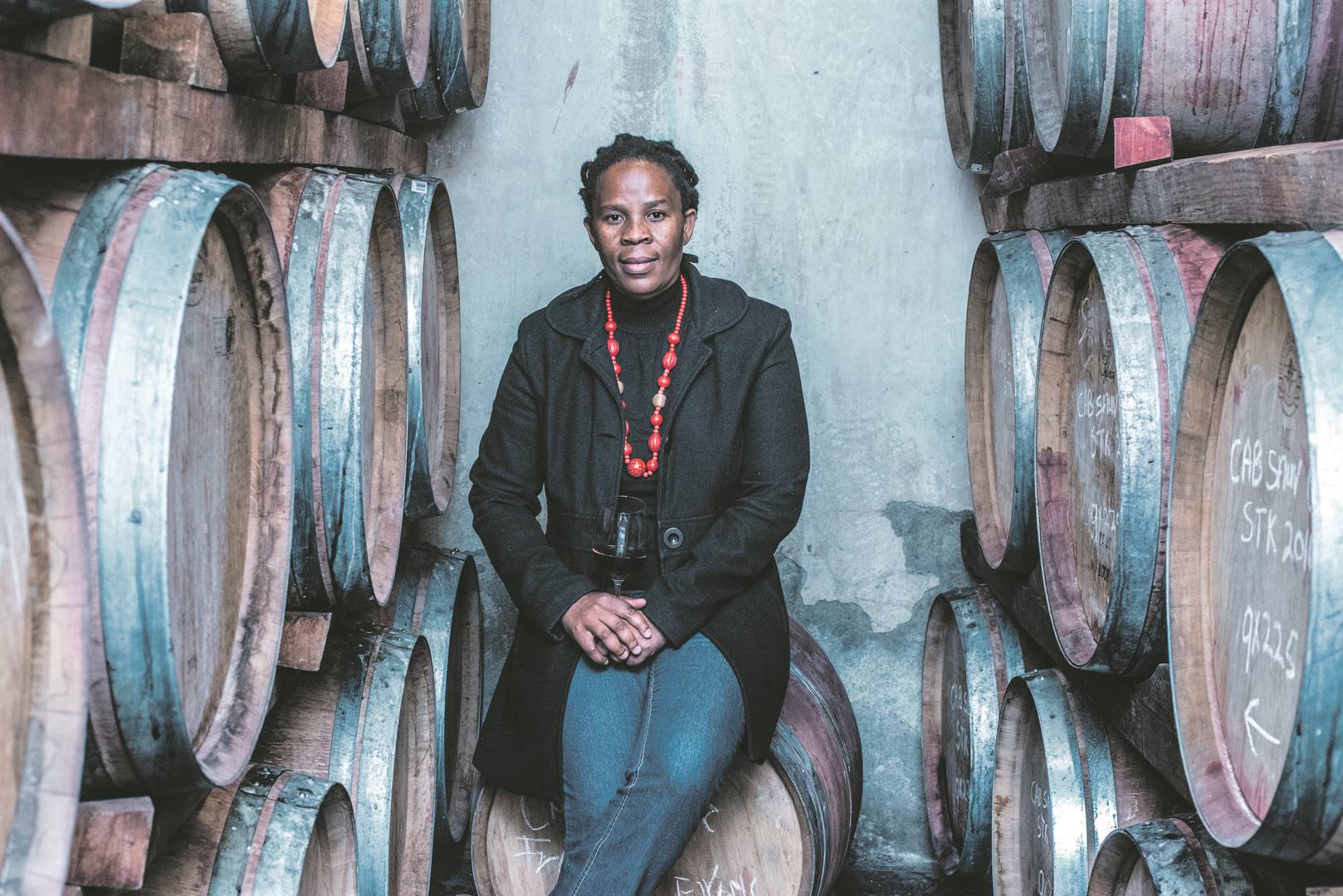
Viticulture and oenology (growing grapes and making wine) are unusual occupations for women, yet Ntsiki Biyela and Unathi Mantshongo left their rural roots to blaze a trail through vineyards and cellars across South Africa.
The world of grapes and wine is not only relatively small in South Africa, but it is also dominated by white men – a challenge for any woman, let alone young black ones who wish to breach its ramparts.
Yet there’s an upside to this because, once Biyela and Mantshongo proved themselves, their names soon became recognised in the close circles of wine production.
Biyela, who is from KwaNondlovu, a village near Mahlabatini in KwaZulu-Natal, lived with her grandmother.
She milked cows, fetched wood and washed clothes in a nearby river until she matriculated in 1996.
Read: Wine merchant Mnikelo Mangciphu: A Soweto wine merchant
During her matric year, her class received application forms for agricultural studies at Stellenbosch University.
“I filled mine in with the help of my Afrikaans teacher, and I also applied for an SAA wine education bursary,” says Biyela.
Her life-changing moment arrived a month later when she heard she’d been offered a full scholarship for a bachelor of science degree in viticulture and oenology.
“But I had no idea what those words meant,” laughs Biyela.
Some of her fellow villagers were shocked that she’d become involved in the production of alcohol, while others regarded agriculture as unglamorous and not far removed from her roots.
“But my grandmother supported me and that’s what mattered,” says Biyela, whose mother was a domestic worker in Durban.
Living in Stellenbosch was a shock for the young woman, whose life in an isolated village meant that “I wasn’t aware of apartheid when I was growing up because I saw only black people there”.
Stellenbosch University was 99.9% white in 1999, and lectures were in Afrikaans.
Read: Winemaker Ntsiki Biyela: Like climbing Table Mountain
On Biyela’s first day there, she did not understand a word and only realised the lecture was over “when the other students got up and left”.
She was living in a coloured township, having been told that accommodation in student hostels was full, when a friend suggested she ask the administrator for help, “and she told me to cry if I was turned away”.
“So I cried and the next day I was told I could live in a hostel.”
There’s no bitterness in Biyela’s voice as she recounts her journey.
After graduating, she struggled to find a job at a winery and was eventually hired by Stellekaya Wines, which is famous for its Cabernet Sauvignon.
There, on the mountains surrounding Stellenbosch, she learnt the ropes in everything, from the vineyards to wine selling, “which most winemakers in big vineyards do not have the opportunity to do”.
Biyela has won several awards – the first was the Michelangelo International Wine & Spirits Award in 2006 “for my 2004 Cape Cross”.
She recalls that, at the white, male-dominated award function, the waiters jumped for joy when her name was called out, “and I danced with them”.
In 2012, Biyela started her own wine brand, which she called Aslina after her grandmother.
Today, she travels the world promoting her wines, but her feet are grounded because she revels in “quiet moments of gratitude and reflection”.
Mthatha-born Mantshongo completed her schooling on Johannesburg’s East Rand, in Boksburg, but was not sure what she wanted to study afterwards.
She loved the outdoors, so she and her mother Nokhanyiso, a single parent of three, decided quantity surveying would be a good idea.
Wits University had accepted her for her chosen career when her mother, who had applied for a bursary for Mantshongo from the department of agriculture, forestry and fisheries, received a phone call.
“The department was offering me a bursary to study winemaking that covered my studies, food, accommodation and books at Stellenbosch University,” says Mantshongo.
She suffered from the same culture shock that Biyela had five years earlier, for she was one of only four black students in her first-year class, and there were only two black people in her hostel.
And, like Biyela, she had never before seen a grape vine. She recalls tasting wine for the first time in her third year of university.
Later on, she couldn’t believe it had taken her four years of study “to make something I had previously thought was undrinkable”.
Until her graduation day, Mantshongo believed that most black graduates would leave oenology and viticulture behind them as they looked for jobs outside the industry.
Then she met Biyela, “who gave us Stellenbosch graduates a talk about winemaking that inspired us”.
Mantshongo, young and nervous, worked as a viticulturist at KWV for four years, while simultaneously doing a postgraduate degree in her field.
Her next move was to Nederburg, where she was in charge of all the viticulture and grape buying for the famous brand.
Today, Mantshongo is the CEO of the VinPro Foundation, which educates young people about winemaking and transforming the leadership of the wine industry. The foundation also works on projects to benefit rural communities.
The two young women who grew up without tasting a drop of wine are courageous trailblazers in a world they never knew existed.
Biyela and Mantshongo are featured in the book The Colour of Wine, published by the Kalipha Foundation.




 Publications
Publications
 Partners
Partners









